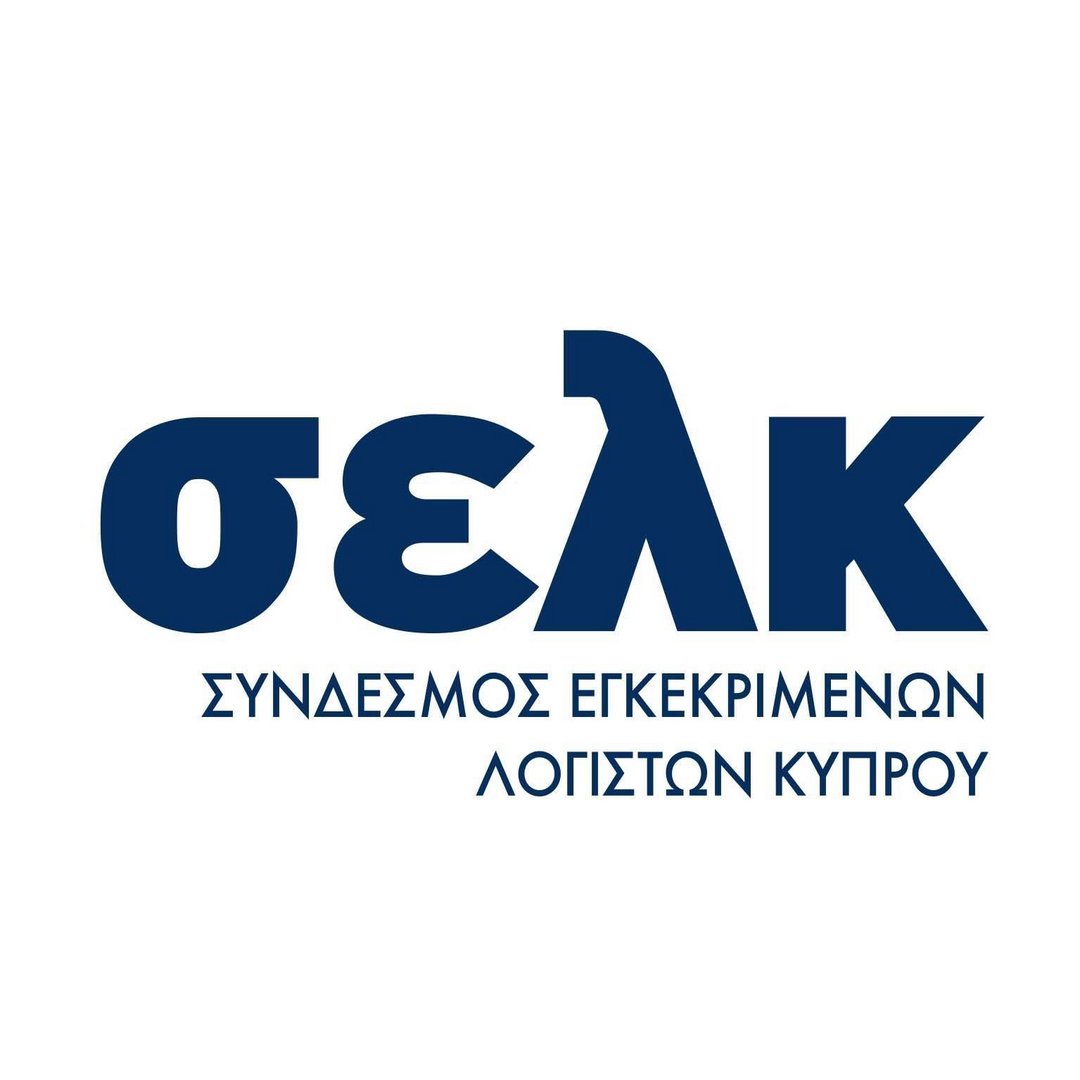Kyriakos Iordanou, the General Manager of The Institute of Certified Public Accountants of Cyprus (ICPAC), acknowledged in a recent address the numerous challenges that both business and people must face. In the same address, he also outlined the organisation’s outlook for 2024.
“it is indisputable that the past few years have been unprecedentedly difficult and demanding for everybody; for the economy, businesses and households, as well as for our profession, accountancy and audit firms and obviously for ICPAC itself,” Iordanou said.
He stated, “Apart from the effects of the Covid-19 pandemic, which is still lurking, the challenges to the economy from increased inflation and the ramifications of the war in Ukraine, plus the recent one in neighbouring Gaza (Israel), the abrupt change of the business landscape in the services sector due to the ‘de-Russification’ of our economy on the one hand, and the imposition of sanctions and restrictive measures, on the other.”

Kyriakos Iordanou, the General Manager of The Institute of Certified Public Accountants of Cyprus (ICPAC)
Furthermore, he emphasised that “we had been called to deal with several important issues concerning the domestic market and the society.”
Iordanou said, “ICPAC devoted and still allocates a large proportion of its time and resources to assisting the State in the latter’s development and growth activities, and in actions to further strengthen the regulatory compliance framework, making thus every possible effort to support the country’s good reputation and image and, of course, those of our professional sector.”
According to the ongoing challenges, Iordanou further noted that “Given these developments, we found ourselves caught amid an inescapable vicious circle of high inflationary trends, with expensive costs of money and energy, increased prices for goods and services, a reduction in the purchasing power of wages and many open projects by the State relevant to our profession, for which, unfortunately, we do not seem to have a clear picture yet.”
Iordanou underscored the obligation to comply and focus on various Directives and initiatives emanating from the European Union, such as the green and circular economy, the management of environmental
resources and long-term sustainable development. He said, “All the above, coupled with social changes and the economic/fiscal capabilities of the State, advocate towards the revision of our longstanding living norms and habits, of the way we traditionally operate and perceive things, which lead to an inevitable adaptation to the new realities.”
Furthermore, he mentioned that “2024 finds us at the forefront of further strengthening our infrastructure and means so that we will be ready to serve to the best possible extent the goals of their Institute and our members.”
“Our core goals and priorities for this year, inter alia, include facilitating the transition into new digital platforms and functionalities, aiming at simplifying and automating many of the current processes,” stated Iordanou, emphasizing the importance of adapting to modern technologies.
He emphasised, “This will enable the organization to streamline operations and enhance efficiency while continuing the resourcing of ICPAC’s operational team, thereby serving members, students, and stakeholders more responsively.”
Additionally, he highlighted that “ICPAC aims to enhance the execution of its roles both as a Professional Accountancy Organization and as the competent authority for the institutional responsibilities entrusted to it.”
“This entails a more robust and efficient management of its duties and obligations, coupled with submitting proposals, suggestions, and solutions to the State, the Government, and the House of Representatives for strengthening and improving the country’s economy in general, as well as for a more effective and leaner operational environment for businesses and our members,” he stated.
He emphasised the importance of “engaging with key stakeholders and decision-makers, aiming to contribute to economic growth and sustainability.”
Furthermore, he mentioned that “Fostering enhanced cooperation with all productive stakeholders of the economy, institutional bodies, and academic institutions, both in and outside Cyprus, is a crucial aim.”
“Continuously training, developing, and supporting members through educational activities, updates, publications, and circulation of information material, as well as through specialized support arrangements for technical issues (helplines), is integral,” he stated regarding their commitment to member development.
Iordanou highlighted advocating for and supporting the interests of the profession, its reputation, credibility, and prospects. He also mentioned that this entails actively promoting the value and integrity of the accounting profession.
He stated that enhancing ICPAC’s corporate governance framework by adopting best international practices is crucial. He also commented on implementing mechanisms to ensure transparency, accountability, and ethical conduct within the organisation.
“Upholding the public interest and the reputation of the country as a reliable and attractive international business destination remains a paramount commitment,” Iordanou said. He stated that this involves safeguarding the integrity of financial practices and promoting Cyprus as a reputable hub for global business endeavours.
Iordanou said that emphasis is expected to be placed this year on several key areas. He stated, “Intensified and broader promotion of the accountancy profession, its role in the business scenery, and the contribution that our members and their firms have to the economy” is crucial. He also mentioned that
there has been a tendency for sidelining ICPAC and targeting professional accountants recently. According to him, ignoring the fact that they are the necessary conduits between businesses and various governmental departments is regrettable.
Moreover, Iordanou highlighted the importance of attracting new students and trainees to the accountancy profession. He stated, “This is an area of primary concern for ICPAC as it touches upon the future of the profession.” He also mentioned significant work being done at schools and universities in cooperation with accountancy firms in this regard.
Furthermore, he emphasised the promotion of matters relating to small and medium companies and accountancy firms, which is closely tied to current EU Directives. Iordanou stressed that this aspect is crucial for fostering growth and sustainability within the business landscape.
Iordanou highlighted the priority of simplifying various processes and procedures, especially in the public sector. He stated, “This aims at alleviating the administrative burden from businesses and enhancing efficiency and functionality in the execution of the many obligations of professional accountants.”
Iordanou said that “concerning The Tax Transformation, it is imperative to address loopholes and inefficiencies within the existing tax framework.” He also mentioned that “there is a pressing need to streamline tax processes and ensure equitable taxation across all sectors.”
He stated that “the implementation of a single overarching authority covering the whole of the financial services sector for AML and Sanctions compliance is crucial.” Iordanou emphasised that “by centralising authority, we can enhance efficiency, effectiveness, and coordination in combating financial crimes.”
Iordanou stressed that “attracting foreign direct investments and value-adding international businesses to Cyprus is paramount for economic growth and sustainability.” He emphasised that “strategic measures must be taken to create an attractive investment climate and remove barriers to entry for foreign investors.”
Regarding the “Green Transition” and the goals set in the Recovery and Resilience Plan, Iordanou highlighted that “the implementation must be prioritised.” He added that “this entails investing in renewable energy, promoting sustainable practices, and transitioning towards a low-carbon economy to mitigate environmental challenges.”
Furthermore, Iordanou noted that “upgrading the country’s competitiveness is essential for long-term prosperity.” He explained that “this involves investing in infrastructure, fostering innovation, and enhancing the skills of the workforce to stay ahead in a globalised economy.”
Moreover, Iordanou stressed that further improvement, and where needed reform, in the legislative framework relating to our profession, is critical.” He highlighted that “strengthening regulatory frameworks ensures accountability, transparency, and ethical conduct within our profession.”
Iordanou emphasised the importance of “fortifying the combat against economic crime and corruption and enhancing transparency and accountability.” He stated that “this necessitates robust enforcement mechanisms, enhanced cooperation between public and private sectors, and promoting a culture of integrity and ethical behaviour.”
Iordanou said that the main strategic objectives and planned activities for 2024 encompass several key areas. “Firstly,” he noted, “there is a focus on the preparation of a Cyprus-based financial reporting standard for Small and Medium Enterprises.” He further emphasised, “Secondly, there is a commitment to supporting and assisting in the implementation of strategic planning for the long-term development of the economy (‘Vision 2035’), as prepared by the Cyprus Economy and Competitiveness Council.”
Furthermore, Iordanou highlighted the importance of complying with the Directives and Regulations of the European Commission concerning the profession and the country’s economy at large. “This includes areas such as tax, corporate, institutional, compliance, and anti-money laundering issues,” he explained. “Moreover,” he added, “attention will be given to wider regulation and monitoring of related professional activities, particularly in line with the implementation of European Directives.”
Addressing environmental concerns, Iordanou mentioned, “Also, the agenda includes addressing the implications of the EU Green Deal and matters related to the profession following the adoption of the Corporate Sustainability Reporting Directive (CSRD).” He stressed, “This is closely tied to considerations of the United Nations Strategic Development Goals (17 SDGs), sustainable development, and the ESG triptych in general.”
Moreover, Iordanou emphasised the importance of strengthening relations and coordination between ICPAC and other economic and social actors, both domestically and internationally. “This involves close collaboration with entities such as Accountancy Europe and IFAC,” he stated. “Concurrently,” he added, “there is a focus on bolstering ICPAC’s role as a competent supervisory authority.”
Regarding educational initiatives, Iordanou stated, “Furthermore, there is a commitment to enriching educational activities for members at the most competitive cost.” He also mentioned, “This will be accompanied by initiatives to increase ICPAC’s extroversion and promote the accountancy profession in secondary and tertiary education schools.”
Iordanou reiterated the overarching goal of safeguarding the public interest through adherence to ICPAC’s Code of Ethics and the principles of transparency and objectivity. “When and where required,” he emphasised, “we will act with dynamism, determination, and boldness to defend the interests of society, our members, and our profession.”
Reflecting on the wider politico-economic developments in the international space for 2024, Iordanou noted, “Our initial estimates indicate a rather demanding year, fraught with many challenges and relative uncertainty.”
He expressed concerns about “the escalation of warfare activities in the Middle East, the trade hurdles encountered, the maritime hazards, and the surging cost for goods transported via ships.” Additionally, he highlighted the unpredictable results in forthcoming elections in the EU for the European Parliament, the US, Russia, India, and other important actors.
Acknowledging the susceptibility of Cyprus to influences from abroad due to its small and open economy, Iordanou remarked, “Given that Cyprus is a small and open economy, it is susceptible to influences from abroad.” He also noted that “there is still plenty of room for improvement in the domestic market and public processes, with the much-needed reforms still appearing to be a far-fetched goal!”
In conclusion, Iordanou reiterated ICPAC’s commitment to the continuous advancement of services provided to its members, the growth of the Institute as an organization, the progress of the economy, and the service of the public interest in general.
“With the developments that revolve around us,” he emphasised, “the accountancy profession is changing gears, and entering a new phase.”
He underscored, “The continuous improvement and upgrading of all of us, from whichever capacity we work, is a sine qua non”, in other words, an essential condition.







Click here to change your cookie preferences